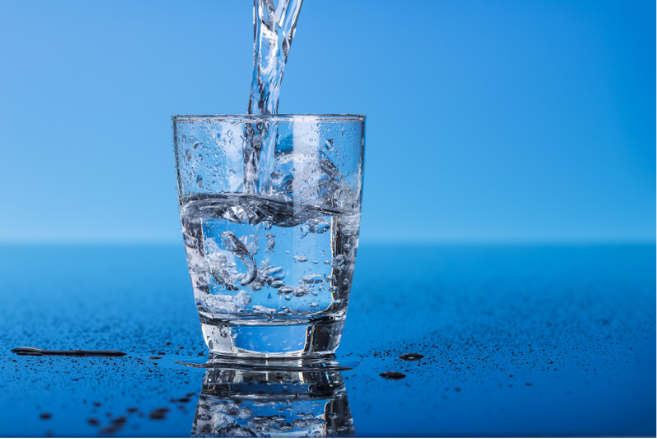The Ultimate Guide to Choosing the very best Water Purification System
Wiki Article
Why a Water Filtration System Is Essential for Clean, Safe Water
Access to tidy, risk-free water is an essential human right and a foundation of public health and wellness. A water purification system stands as a vital service to mitigate these risks, guaranteeing that communities and individuals can access risk-free alcohol consumption water.Significance of Clean Water
Accessibility to tidy water is an essential necessity for human health and wellness and wellness. Infected water can lead to major health concerns, including gastrointestinal health problems, cholera, and dysentery, particularly in at risk populations such as youngsters and the elderly.Furthermore, clean water is crucial for sanitation and health practices, which are essential in avoiding the spread of contagious illness. Ample water supports correct sanitation facilities, promoting a much healthier atmosphere. Additionally, accessibility to safe water influences socioeconomic elements, as it allows communities to participate in farming and industrial tasks, ultimately adding to economic advancement.
In lots of regions, the lack of tidy water exacerbates poverty and inequality, additional impeding progress toward lasting growth objectives. For that reason, making certain access to tidy water is not only a public wellness necessary but also a cornerstone for social equity and economic growth. Initiatives to enhance water high quality and framework have significant benefits, cultivating healthier neighborhoods and improving top quality of life.

Usual Pollutants in Water
Making sure the availability of clean water is threatened by various contaminants that can jeopardize its safety and quality. The visibility of microorganisms, such as infections, bloodsuckers, and microorganisms, poses significant health risks, specifically in areas lacking sufficient sanitation. These microbes can cause waterborne illness, resulting in serious ailment or perhaps fatality.Chemical contaminants additionally provide a vital concern. Hefty steels, including lead, mercury, and arsenic, commonly get in water supplies with commercial discharges or rusty plumbing. These compounds can gather in the body over time, leading to lasting health and wellness concerns such as neurological damages and developmental disorders.
Additionally, farming drainage introduces chemicals and fertilizers into water supply, which can interrupt environments and negatively impact human health and wellness. Nitrates, commonly discovered in plant foods, can cause severe conditions like methemoglobinemia, especially in infants.
Advantages of Water Purification Systems
Identifying the vital need for secure drinking water, water purification systems use a myriad of benefits that enhance public health and ecological sustainability. Largely, these systems successfully remove hazardous contaminants, consisting of bacteria, viruses, heavy metals, and chemicals, making sure that the water taken in is without microorganisms and contaminants. This decrease in impurities considerably decreases the risk of waterborne illness, advertising overall neighborhood health.Along with health benefits, water purification systems contribute to ecological sustainability by lowering dependence on mineral water, which typically produces extreme plastic waste. By using a purification system, households can decrease their carbon footprint and add to an extra sustainable environment. Moreover, these systems can enhance the taste and smell of water, making it extra palatable for day-to-day usage.

Different Types of Filtration Methods

One usual approach is reverse osmosis, which uses a semi-permeable membrane to different water from dissolved solids and impurities. This process properly lowers pollutants, including hefty metals and chemicals. Another commonly made use of technique is ultraviolet (UV) disinfection, which uses UV light to reduce the effects of infections and microorganisms, providing them harmless without the usage of chemicals.
Triggered carbon purification is an additional preferred strategy, making use of carbon to adsorb organic substances, chlorine, and undesirable odors, enhancing taste and smell high quality. Distillation, a process that includes boiling water and condensing the steam, efficiently eliminates minerals and contaminants yet might call for even more power contrasted to various other approaches.
Ion exchange is typically utilized to soften water by changing calcium and magnesium ions with salt or potassium ions. Each technique has its restrictions and advantages, making it important to recognize their performances and performance in resolving certain water high quality problems - Water Purification System. Ultimately, choosing the proper purification method is important for ensuring safe and tidy alcohol consumption water
Picking the Right System
Choosing a proper water purification system requires mindful consideration of various aspects, consisting of the specific contaminants present in the water supply, the volume of water required, and the desired filtration approach. It is critical to carry out a water top quality examination to determine contaminants such as microorganisms, heavy metals, or chemical contaminants. This details will direct you in picking a system that properly targets those certain contaminations.
Following, assess your household's daily water intake to establish the system's ability. Equipments are offered in various dimensions, from point-of-use filters for drinking water to whole-house units that purify all water entering your home.
Additionally, think about the filtration approach that best fits your demands. Reverse osmosis is highly efficient for eliminating a vast range of contaminants, while UV purification is excellent for removing microbes.
Conclusion
read this post here In conclusion, the execution of water purification systems is essential for making sure accessibility to clean and secure water. By recognizing the value of tidy water and the benefits of different purification methods, communities can make educated decisions to safeguard their wellness and promote socioeconomic stability.Acknowledging the crucial demand for risk-free alcohol consumption water, water purification systems use a myriad of advantages that enhance public health and wellness and environmental sustainability.In enhancement to health and wellness advantages, water purification systems contribute to ecological sustainability by reducing reliance on bottled water, which usually generates extreme plastic waste. Ultimately, the fostering of water filtration systems is a positive step toward making certain tidy, risk-free water for future generations while guarding public wellness and the environment.
Picking an ideal water purification system requires cautious consideration of go to these guys different elements, including the certain contaminants existing in the water supply, the volume of water required, and the desired filtration method.In conclusion, the implementation of water filtration systems is essential for making sure access to risk-free and tidy water.
Report this wiki page